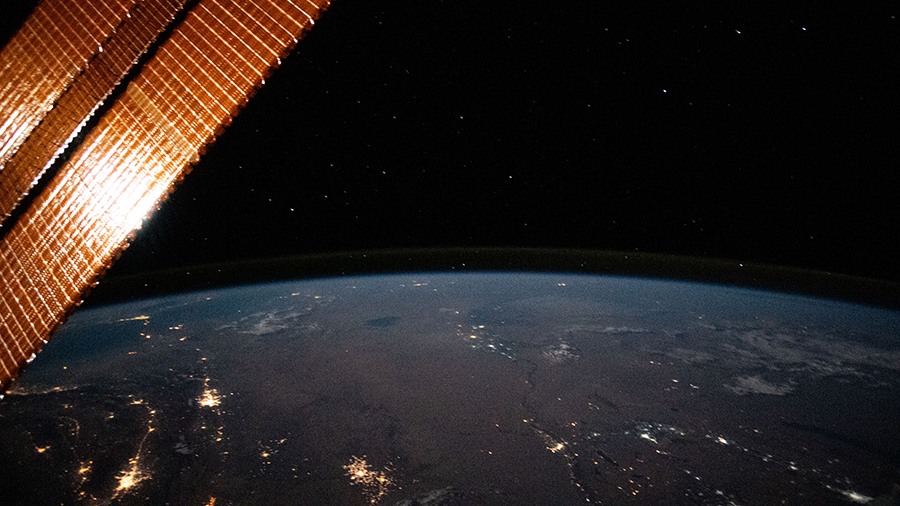Eye Checks and Pilot Study Kickoff Work Week

Eye checks took place aboard the International Space Station today to help flight surgeons understand how living in space affects vision. The Expedition 63 crew also explored future space-piloting techniques and worked on atmospheric and power systems.
All three space lab residents participated in vision tests today measuring visual acuity, visual field and contrast sensitivity. Just like visiting an eye doctor on Earth, the crew members read an eye chart at various distances and different contrasts. Doctors are exploring why some astronauts have reported vision impacts following the completion of their months-long station missions.
Commander Chris Cassidy also spent Monday working on a variety of life support and science hardware. The veteran NASA astronaut first set up a small, portable device that is testing the continuous analysis of the station’s atmosphere for elements such as nitrogen, oxygen, carbon dioxide, methane and water. The data is transmitted back to Earth every two seconds for review by ground specialists.
Cassidy then collected and stowed water samples from the plumbing system inside the Tranquility module for later analysis back on Earth. He finally relocated the TangoLab-2, a science facility that supports biology and chemistry studies in a more power efficient device with better cooling capabilities.
Future missions to the Moon, Mars and beyond will require updated piloting skills necessary to operate spacecraft and robots in different gravity and planetary environments. Cosmonaut Ivan Vagner continued researching those skills aboard the station today to inform training techniques to successfully control a vehicle on a planetary surface.
Cosmonaut Anatoly Ivanishin spent his morning checking Russian battery temperatures and power connections with assistance from Vagner. The three-time station resident also synchronized cameras to station clocks and worked on computer hardware.
from Space Station https://ift.tt/2ROpyl7
Comments
Post a Comment